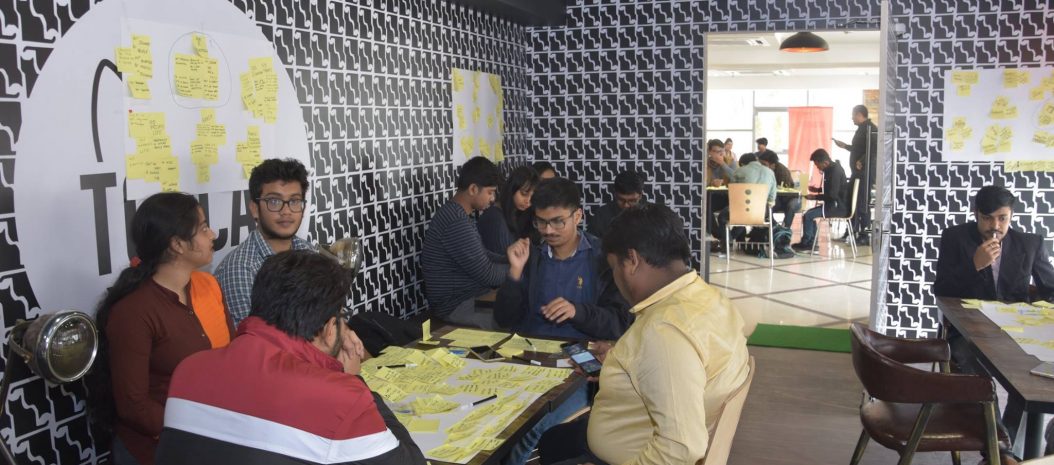
Feb 02, 2019 / Design Thinking
Kolkata – February 2nd, 2019 – Kolkata’s alarming levels of air pollution have been hitting the headlines for the past few months. The share of its population living in slums and on its streets can be counted in millions. Waste and trash can be found in most places, lying down on its concrete or floating on its lakes and rivers banks.
Techno India Group and its newly built Sustainability and Social Innovation wing Y-East, are refusing to give up on the scenario and have been giving their best to provide solutions and promote the City of Joy as a new innovation pole at the national and regional level. “It is about redirecting the students' energy, efforts and brains to professional projects that matter, that are socially and environmentally
responsible. It is high time we include it systematically in the education system’ says Miss Pauline Laravoire, Director of Sustainability, Techno India Group and Founder, Y-East.
In this spirit, Techno India and Y-East, along with other premium partners like Offbeat CCU, Adisyam, Technopreneurs Surrogate Ventures and LinkedIn Local Youth, organised a Social Innovation Challenge on February 1st and 2nd, 2019. The first day of the event will took place at Offbeat CCU, Techno India’s brand new educational venture. On this first day of the Social Innovation Challenge, close to 100 students from different local and national institutions, split in teams of 4 to 6 members, brainstormed to find actionable solutions related to air pollution, affordable and sustainable housing, waste management and social inequalities in Kolkata. The innovation process was guided by Adisyam, a Bangalore-based organisation specialised in Social Innovation and Design Thinking. Design Thinking is a methodology recognized worldwide, consisting in designing relevant solutions based accurate identification of a problem, and on human-centered, empathy-based process to deeply understand the people suffering from this particular issue. ‘It is all about our ability to imagine ourselves in their shoes and understand what they need’, Shwetabh explained. At the end of the day, all teams presented their ideas in front of their peers and a professional jury of entrepreneurs and sectoral experts, who selected the most promising innovations.
On the second day of the event, on Techno India Main Campus in Salt Lake, these same students along with another 100 attendees attended a Social Innovation Conference and had the opportunity to listen to speakers who have made a career out of social and environmental innovation, e.g. Tushar Himatsinghka, Founder and CEO of waste management company Vital Waste, and Madiha Ahmed, youth and parent education mentor. At the end of the session, the best teams from Day 1 were finally announced and rewarded with potential incubation and financial support to develop the idea further from there! The innovations included a platform fighting against mental health and addiction issues, a solution for transgenders to be better included into the formal employment market, and a AI-based waste segregating robot. Wishing all the best to these teams of budding social entrepreneurs!